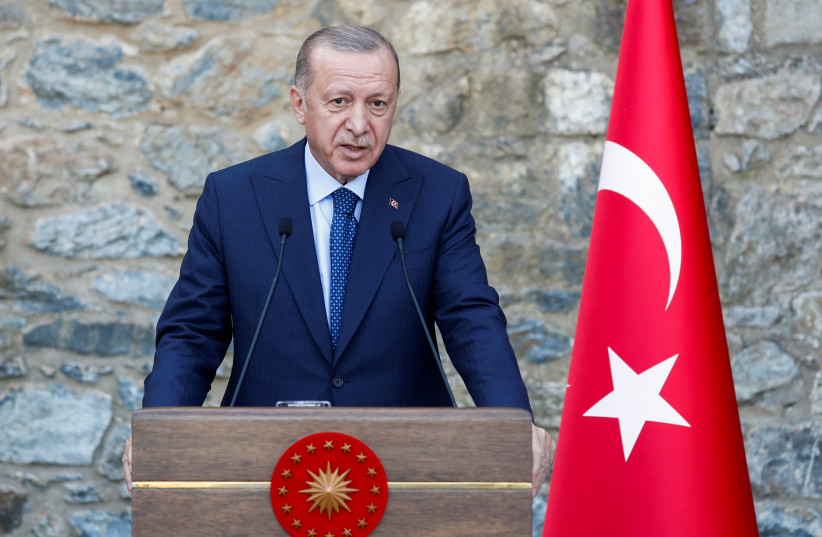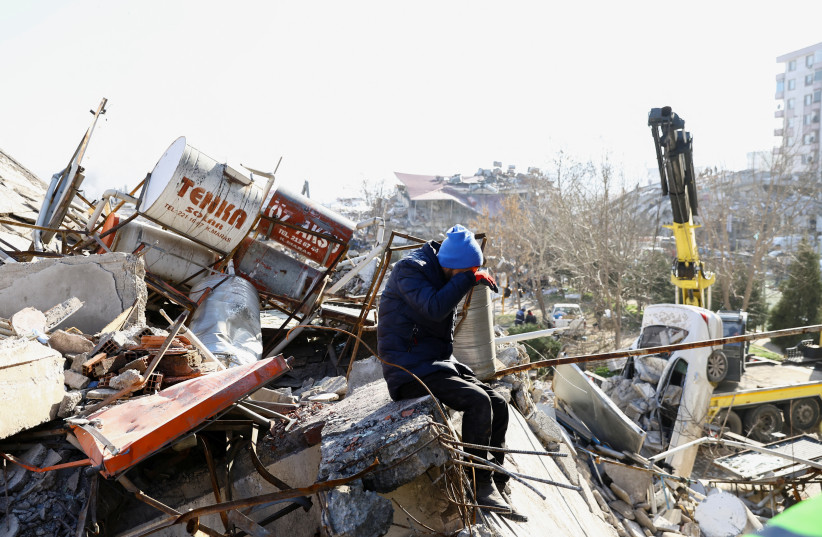In his pre-election pitch in 2020, President Joe Biden made clear it was the US’s role to lead the way. “We have to champion liberty and democracy.”
“We have to champion liberty and democracy.”
Joe Biden
In Afghanistan, Biden fumbled the catch but otherwise has lived up to his promise. His staunch support for Ukraine is reminiscent of president Franklin D. Roosevelt’s call on America to be “the great arsenal of democracy.”
Once again, the US leads the way with major support decisions for Ukraine, with EU countries following with some delay.
Biden also stated that the US would bring the vast majority of its troops home from wars in Afghanistan and the Middle East, and defined its mission as defeating al-Qaeda and ISIS. For this reason, Defense Secretary Lloyd Austin has just declared that US forces are ready to remain in Iraq.
Cooperation between US special forces and the Kurdish-led Syrian Democratic Forces in northern Syria, which led to the defeat of ISIS, has turned out to be a successful and cost-effective operation. When former president Donald Trump, after a phone call with Turkey’s President Recep Tayyip Erdogan, green-lighted a third Turkish incursion into Syria in October 2019, this put a spanner in the works.

The US problem with Turkey
US support for Kurdish forces in Syria is a constant irritant for Turkey and has led to an attempt to appease Ankara when the chairman of the Joint Chiefs of Staff, General Mark Milley, visited northeast Syria. A State Department spokesperson said he had met only with US troops while there.
The only thing that prevents a planned fourth incursion is Russia’s permission, but Russia is more occupied with its own backyard in Ukraine.
Biden has declared NATO to be the bulwark of the liberal democratic idea – “an alliance of values,” which is where Turkey falls short. Since Erdogan and his Justice and Development Party (AKP) government came to power in 2002, Turkey has undergone a major axis shift, which brings it into conflict with the NATO alliance and its core values: the principles of democracy, individual liberty and the rule of law.
This is demonstrated by last July’s trilateral meeting in Tehran between Russian President Vladimir Putin, Turkey’s Erdogan and Iranian President Ebrahim Raisi, where they confirmed their cooperation. In September, Erdogan returned from the Shanghai Cooperation Organization’s summit in Samarkand, where he played a leading role.
Erdogan also stated that it was his target to join the Shanghai Cooperation Organisation, which the European Council on Foreign Relations has branded “Rogue NATO.” Turkey is also blocking Sweden’s NATO membership unless it hands over dissidents Turkey considers terrorists.
Since Putin announced a partial mobilization last September, Turkey has provided a safe haven for thousands of Russians and their capital. This has been to the detriment of ordinary Turks, who have been driven from their homes by the dramatic increase in rents. In the popular tourist destination, Antalya, the number of Russian and Ukrainian estate agents working illegally has outnumbered Turkish authorized realtors.
The US Treasury’s Under Secretary for Terrorism and Financial Intelligence Brian E. Nelson has warned Turkish businesses and banks they could put themselves at risk of sanctions, which include a potential loss of access to G7 markets, for engaging with sanctioned Russian entities.
After sanctions were imposed on Turkey for its acquisition of the Russian S-400 missile defense system, it was cut out of the F-35 program. Nevertheless, a year ago the State Department recommended to Congress that it would be in line with US national security interests and serve NATO’s long-term unity to approve the sale to Turkey of 40 F-16 fighter jets and 79 modernization kits.
Following the Munich Security Conference, which focused on unity against Russia, Secretary of State Antony Blinken continued to Turkey, where he met with Foreign Minister Mevlut Cavusoglu. After the massive destruction caused by the earthquakes in southeastern Turkey, the US pledged $185 million in relief aid for Turkey and Syria.
Despite the national disaster, Turkey’s foreign minister urged Blinken to accelerate the sale of the F-16 fighter jets to Turkey, and Blinken expressed the Biden administration’s strong support for the deal.
Blinken flew on to Athens, where he met with his Greek counterpart, Nikos Dendias. Both parties mentioned the amendment of the Mutual Defense and Cooperation Agreement (MDCA) and the inclusion of the port of Alexandroupolis as a key strategic hub. Blinken also referred to Greece’s humanitarian response to the earthquakes.
BIDEN HAS also spoken of a commitment to fight corruption, defend against authoritarianism and advance human rights. In light of the State Department’s 2021 report on human rights abuses in Turkey, it is time for the US administration to take a long, hard look at its NATO ally.

Is change coming to Turkey?
In the aftermath of the earthquake disaster, the ground has been laid for significant change. More than 170,000 buildings have either been destroyed or badly damaged, around 1.9 million are being housed in temporary shelters, and more than 50,000 have died in Turkey and Syria.
According to a provincial governor in the earthquake zone, the earlier figure of more than 41,000 dead in Turkey could be as much as five times higher. A geologist has estimated that out of the 184,000 under the rubble, only one in 25 has been rescued.
In a detailed analysis, the Financial Times has shown how the collapse of the Rönesans Residans (Renaissance Residence), a luxury apartment complex in Antakya, has become a symbol of the rot in Turkey’s construction system. Erdogan has said Turkey will, beginning in March, build almost 200,000 homes in the devastated southeast. TOKI, Turkey’s Housing Development Administration, has in three days held eight tenders for the construction of 3,770 residential buildings.
With elections looming, the issue of accountability is uppermost in Erdogan’s mind. Criticism has been leveled at the state’s tardy response in the critical first 48 hours after the earthquake struck early in the morning on February 6. In a blatant pitch for reelection, Erdogan has appealed to be given a year, in which he promises to almost heal the wounds from the earthquakes. He has also blamed the failure to respond immediately on the devastating impact of the earthquakes and the bad weather.
However, rescue operations were hindered when Twitter was blocked for 12 hours. Turkey’s director of communications, Fahrettin Altun, has introduced a new app, a “Disinformation Reporting Service,” so users can report people who disseminate fake news or disinformation online.
Apart from the hunt for scapegoats, 138 people have already been detained because of “provocative” social media posts about the earthquakes. But the mood in Turkey is turning. Reminiscent of the Gezi Park protests in 2013, crowds at football matches are chanting for the government to resign.
Now the six-party opposition has agreed on the leader of the Republican People’s Party (CHP), Kemal Kilicdaroglu, as their presidential candidate. But it will be the pro-Kurdish Peoples’ Democratic Party (HDP) that will be the deciding factor and determine whether Turkey can become a democratic state or remain under Islamic rule.
The writer is an international adviser at the Research Institute for European and American Studies in Athens.
